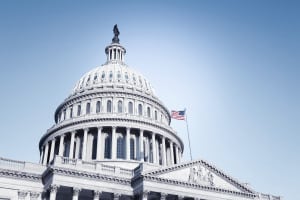The Centers for Disease Control and Prevention issued a new eviction moratorium yesterday that would last until Oct. 3, even as President Joe Biden publicly questioned whether it could survive a Supreme Court challenge.
The ban announced Tuesday could help keep millions in their homes as the coronavirus’ delta variant has spread and states have been slow to release federal rental aid. It would temporarily halt evictions in counties with “substantial and high levels” of virus transmissions and would cover areas where 90 percent of the U.S. population lives.
Under new data announced over the weekend, nine of Massachusetts’ counties meet that bar, including all of Cape Cod, the five-county Greater Boston area, the Springfield and Northampton areas and Greater Worcester.
The announcement was a reversal for the Biden administration, which allowed an earlier moratorium to lapse over the weekend after saying a Supreme Court ruling prevented an extension. That ripped open a dramatic split between the White House and progressive Democrats who insisted the administration do more to prevent some 3.6 million Americans from losing their homes during the COVID-19 crisis.
Speaking at the White House on Tuesday, Biden said he pushed the CDC to again consider its options. But he still seemed hesitant as to whether the new moratorium could withstand lawsuits about its constitutionality, saying he has sought the opinions of experts as to whether the Supreme Court would approve the measure.
“The bulk of the constitutional scholarship says that it’s not likely to pass constitutional muster,” Biden said. “But there are several key scholars who think that it may and it’s worth the effort.”
But it’s also possible that such a challenge won’t matter in the administration’s effort to keep millions of Americans from facing eviction after losing jobs during part or all of the COVID-19 pandemic.
The president added that the moratorium – even if it gets challenged in court – “will probably give some additional time” for states and city to release billions of dollars in federal relief to renters.
The White House has said state and local governments have been slow to push out the $47 billion in federal eviction aid money and is pressing them to do so swiftly.
Massachusetts’ own aid distribution process has progressed slowly, with only about one-third of the $1 billion in state and federal aid given out so far. Many applicants are also having trouble even submitting applications, with state figures showing 45 percent of applications begun aren’t finished, and 80 percent of applications actually submitted are incomplete in some way or another.
Politically, the extension could help heal a rift with liberal Democratic lawmakers who were calling on the president to take executive action to keep renters in their homes. The administration had spent the past several days scrambling to reassure Democrats and the country that it could find a way to limit the damage from potential evictions through the use of federal aid.
Democratic lawmakers said they were caught by surprise by Biden’s initial decision to end the moratorium even though the CDC indicated in late June that it probably wouldn’t extend the eviction ban beyond the end of July.
Administration officials had previously said a Supreme Court ruling stopped them from setting up a new moratorium without congressional backing. When the court allowed the eviction ban to remain in place through the end of July by a 5-4 vote, one justice in the majority, Brett Kavanaugh, wrote that Congress would have to act to extend it further. The Democrat-controlled Congress, however, was unable to agree on an extension bill despite intense lobbying from progressive members.
The CDC put the initial eviction ban in place as part of the COVID-19 response when jobs shifted and many workers lost income. The ban was intended to hold back the spread of the virus among people put out on the streets and into shelters, but it also penalized landlords who lost income as a result.
National Apartment Association president and CEO Bob Pinnegar said the organization “has always held the same position – the eviction moratorium is an unfunded government mandate that forces housing providers to deliver a costly service without compensation and saddles renters with insurmountable debt.”




 |
| 


